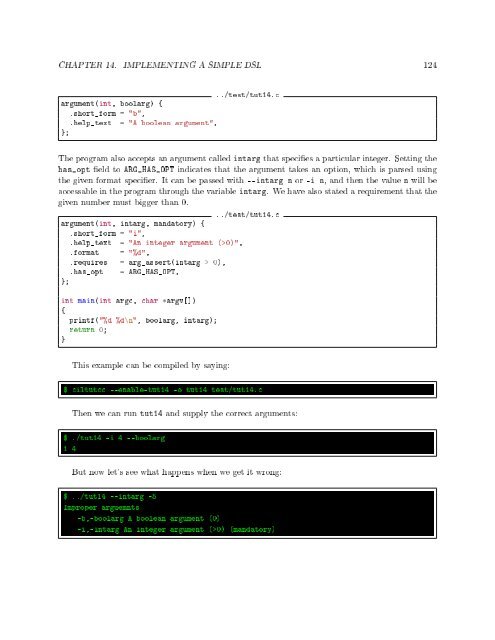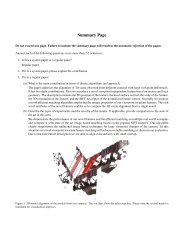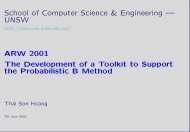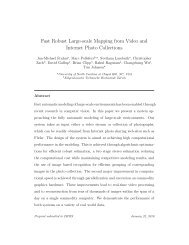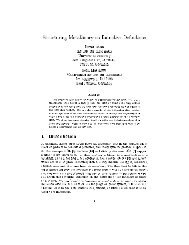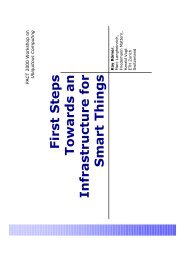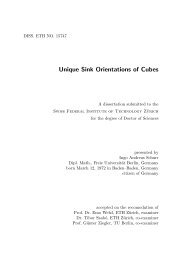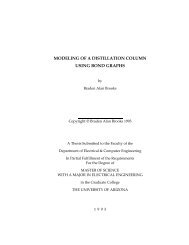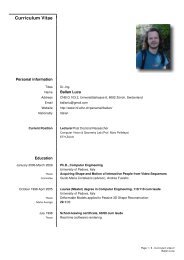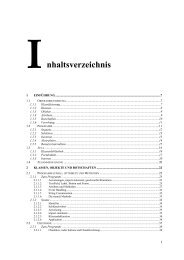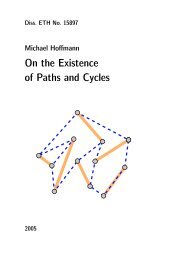A CIL Tutorial - Department of Computer Science - ETH Zürich
A CIL Tutorial - Department of Computer Science - ETH Zürich
A CIL Tutorial - Department of Computer Science - ETH Zürich
You also want an ePaper? Increase the reach of your titles
YUMPU automatically turns print PDFs into web optimized ePapers that Google loves.
CHAPTER 14. IMPLEMENTING A SIMPLE DSL 124<br />
../test/tut14.c<br />
argument(int, boolarg) {<br />
.short_form = "b",<br />
.help_text = "A boolean argument",<br />
};<br />
The program also accepts an argument called intarg that species a particular integer. Setting the<br />
has opt eld to ARG HAS OPT indicates that the argument takes an option, which is parsed using<br />
the given format specier. It can be passed with --intarg n or -i n, and then the value n will be<br />
accessable in the program through the variable intarg. We have also stated a requirement that the<br />
given number must bigger than 0.<br />
../test/tut14.c<br />
argument(int, intarg, mandatory) {<br />
.short_form = "i",<br />
.help_text = "An integer argument (>0)",<br />
.format = "%d",<br />
.requires = arg_assert(intarg > 0),<br />
.has_opt = ARG_HAS_OPT,<br />
};<br />
int main(int argc, char *argv[])<br />
{<br />
printf("%d %d\n", boolarg, intarg);<br />
return 0;<br />
}<br />
This example can be compiled by saying:<br />
$ ciltutcc --enable-tut14 -o tut14 test/tut14.c<br />
Then we can run tut14 and supply the correct arguments:<br />
$ ./tut14 -i 4 --boolarg<br />
1 4<br />
But now let's see what happens when we get it wrong:<br />
$ ../tut14 --intarg -5<br />
Improper arguemnts<br />
-b,boolarg A boolean argument (0)<br />
-i,intarg An integer argument (>0) (mandatory)


